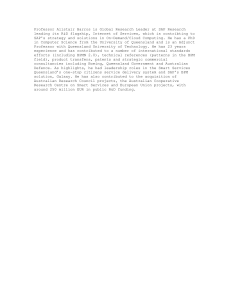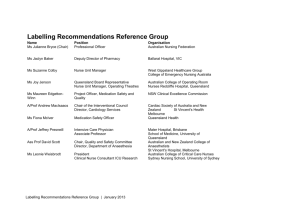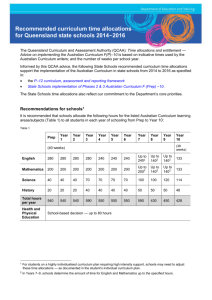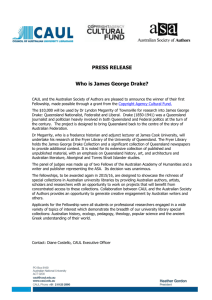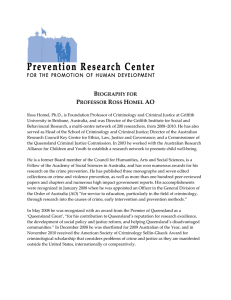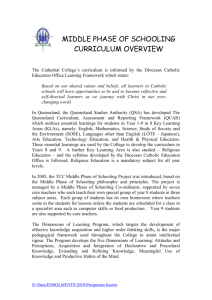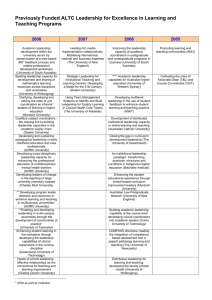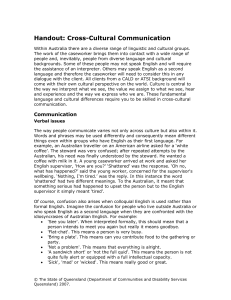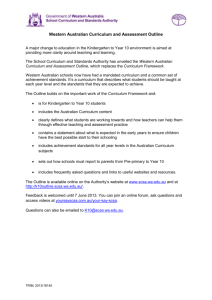Languages in Queensland State Schools
advertisement
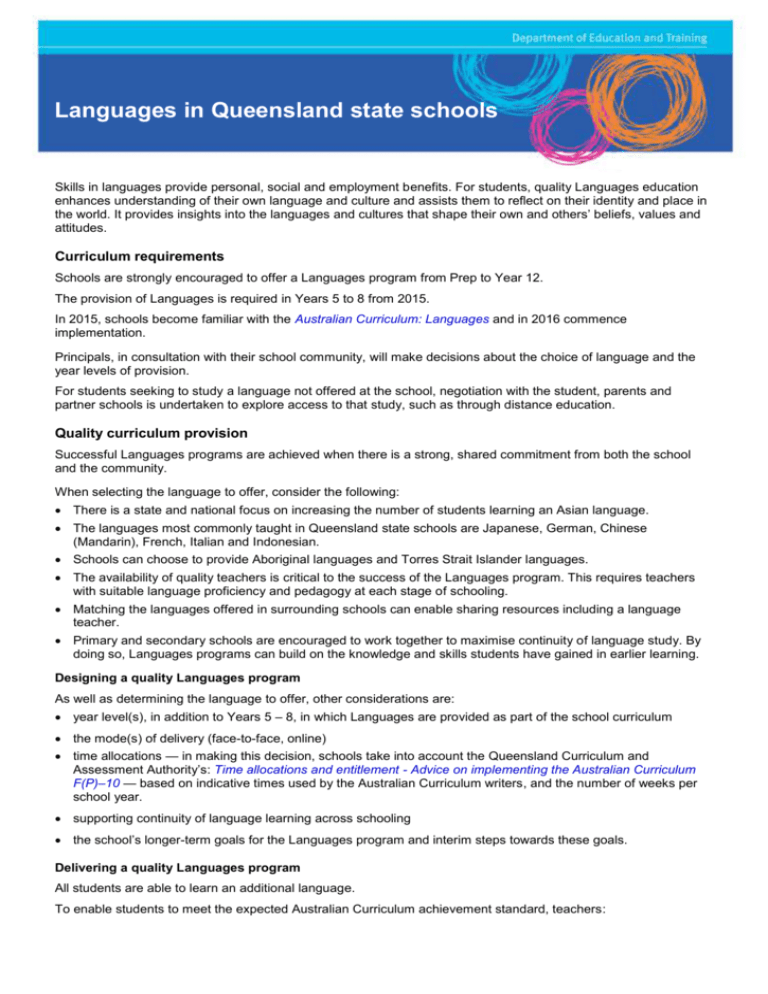
Languages in Queensland state schools Skills in languages provide personal, social and employment benefits. For students, quality Languages education enhances understanding of their own language and culture and assists them to reflect on their identity and place in the world. It provides insights into the languages and cultures that shape their own and others’ beliefs, values and attitudes. Curriculum requirements Schools are strongly encouraged to offer a Languages program from Prep to Year 12. The provision of Languages is required in Years 5 to 8 from 2015. In 2015, schools become familiar with the Australian Curriculum: Languages and in 2016 commence implementation. Principals, in consultation with their school community, will make decisions about the choice of language and the year levels of provision. For students seeking to study a language not offered at the school, negotiation with the student, parents and partner schools is undertaken to explore access to that study, such as through distance education. Quality curriculum provision Successful Languages programs are achieved when there is a strong, shared commitment from both the school and the community. When selecting the language to offer, consider the following: There is a state and national focus on increasing the number of students learning an Asian language. The languages most commonly taught in Queensland state schools are Japanese, German, Chinese (Mandarin), French, Italian and Indonesian. Schools can choose to provide Aboriginal languages and Torres Strait Islander languages. The availability of quality teachers is critical to the success of the Languages program. This requires teachers with suitable language proficiency and pedagogy at each stage of schooling. Matching the languages offered in surrounding schools can enable sharing resources including a language teacher. Primary and secondary schools are encouraged to work together to maximise continuity of language study. By doing so, Languages programs can build on the knowledge and skills students have gained in earlier learning. Designing a quality Languages program As well as determining the language to offer, other considerations are: year level(s), in addition to Years 5 – 8, in which Languages are provided as part of the school curriculum the mode(s) of delivery (face-to-face, online) time allocations — in making this decision, schools take into account the Queensland Curriculum and Assessment Authority’s: Time allocations and entitlement - Advice on implementing the Australian Curriculum F(P)–10 — based on indicative times used by the Australian Curriculum writers, and the number of weeks per school year. supporting continuity of language learning across schooling the school’s longer-term goals for the Languages program and interim steps towards these goals. Delivering a quality Languages program All students are able to learn an additional language. To enable students to meet the expected Australian Curriculum achievement standard, teachers: engage students in meaningful use of language through structured and sequenced learning model language use in authentic contexts including culturally appropriate behaviours use information and communications technologies to engage students with language for a real purpose in various contexts connect students with peers in other countries for joint projects build on students’ prior knowledge and experiences differentiate and provide focused teaching as required to meet the needs of diverse learners, including students of different language backgrounds. In these ways, teachers implement the Australian Curriculum: Languages using effective pedagogy to ensure that students can develop their knowledge and use of the target language. Teachers design assessment to ensure that all learners are able to demonstrate the full extent of their ability to communicate in the target language. See Assessment. Student exemptions Learning an additional language can strengthen general literacy skills and students’ understanding of their first language. It can offer a new beginning and potential success for learners who may have experienced difficulties with English. Decisions to exempt individual students from the school’s Languages program are made by the principal, when it is identified that this is in the best interest of the student and in consultation with parents. Languages in Queensland state schools Page 2 of 2
